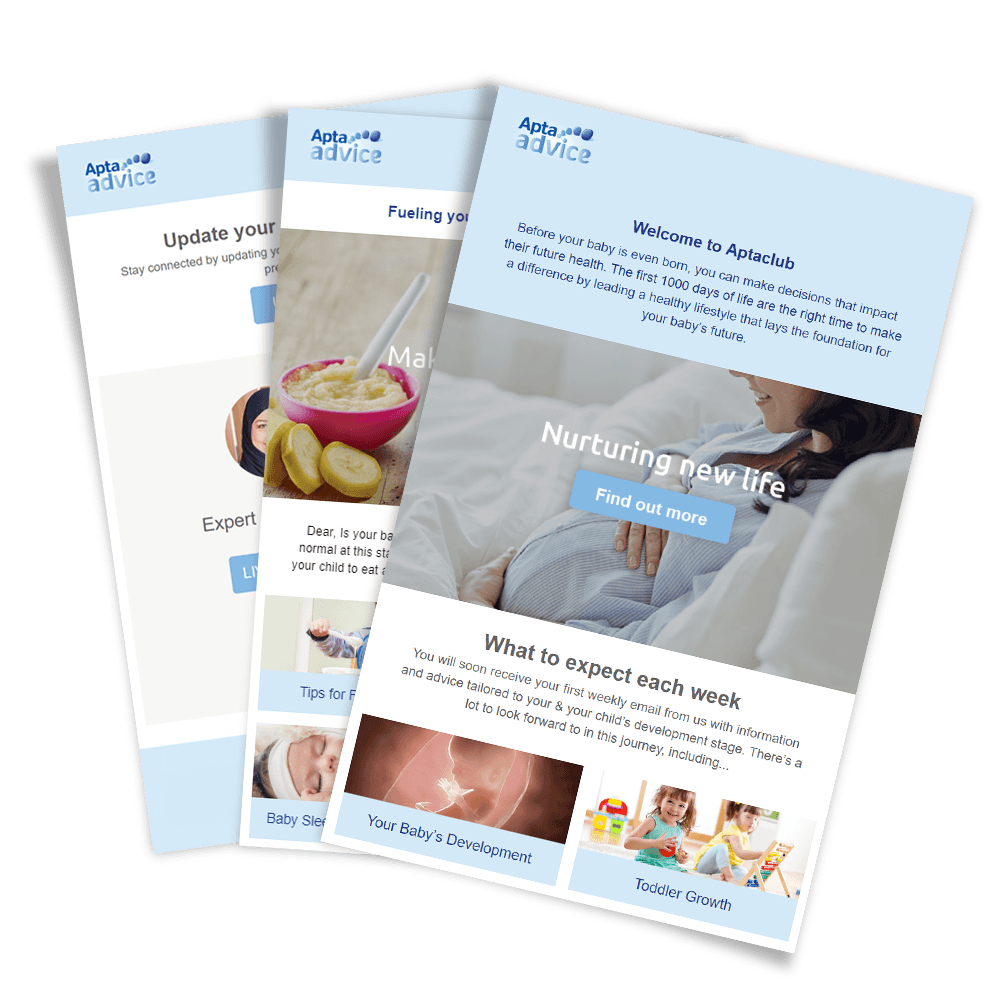1 to 3 years

Your baby has done a lot of growing in their first year, both physically and mentally. But from 12 months on, it’s the turn of your toddler’s brain to develop in leaps and bounds. Being part of this development is a rewarding time. The changes that occur in your toddler’s brain all contribute to those first magical steps and words.
Your toddler learns more from you than you might realise, so as a mum, there’s lots you can do to encourage them. This article looks at what’s happening at this stage of your toddler’s development and the ways in which you can support and nurture their growth. Just remember that every toddler will progress at his or her own pace, which is what makes them so unique.
What’s happening around now?
Your toddler is developing in what they can do, how they explore, the way they speak and the way they learn. Having cruised around the furniture for a few months, they’ll soon attempt to go it alone. There is no ‘right’ age by which a toddler should start walking; every toddler is different. Most begin walking between 11 and 14 months, but some start much earlier and others as late as 17 months. Encourage your toddler but let them progress at their own pace.
When it does happen, they’ll move from first steps to walking, running and bouncing about quite quickly. This truly exciting milestone requires strong muscles which is why it’s so important to give them a healthy, balanced diet that provides them with the vitamins, minerals and calories they need to develop.
As they near their second birthday it’ll be much clearer whether they are right or left-handed. Your baby’s preference will have been decided when they were in the womb, although left-handedness is relatively uncommon with only 7-10% of the adult population being left-handed. Whichever your baby prefers, they’ll use their dominant side to scribble, kick a ball and feed themselves. They may even be able to use their preferred hand to brush their teeth – with a little help.
Developing self-awareness
Your toddler is experiencing a wide range of emotions as their brain develops. But with a vocabulary that is still quite limited, they can’t always express themselves or tell you what they want, which can be frustrating for them and probably for you, too. That’s why, from 12 – 18 months, temper tantrums and fiery outbursts are common. But they may also communicate in other non-verbal ways, such as covering their face when embarrassed.
This is also a time when toddlers become more self-aware – you might notice they begin to use ‘I’ and ‘me’ a lot. Understanding the concept of sharing can take time and grabbing toys and shouting “mine” is quite common. Try to be patient and don’t worry if your toddler seems to like their own company rather than playing in groups – this is perfectly normal.
Increased communication skills
Your toddler’s communication skills are improving, as words gradually evolve into phrases and requests. At around 12 months, your toddler may be able to use around 1 to 5 words. But by 14 months, this can increase to up to 20 words. If your toddler is being raised in a bilingual household, the number of words they’ll be able to say will be split across the languages.
Not all toddlers are quite so vocal, so if your toddler isn’t using as many words, don’t worry; they’ll understand a lot more than they can say. As forming whole sentences is a way off, toddlers often use single words to explain what they want, such as ‘cup’ for ‘I want my cup’.
When they do start putting words together, they’ll still be quite simple; ‘play me’ when they want you to play with them, for example. The more they learn and understand, the more they’ll listen with interest to what you’re saying. At this stage, your toddler is more than likely to want to join in nursery rhymes and songs – so it’s a good idea to refresh your memory and recall your own childhood favourites.
Learning more every day
Their increasing awareness of what’s going on mixed with a desire for greater assertiveness means that your toddler might want to take control now and again. Allowing your toddler to make their own decisions is a great way to encourage them. Let them choose what clothes to wear or what games to play. You can also help your toddler to make use of their new co-ordination skills by walking in different ways – sideways, backwards, forwards – as well as running and jumping.
Just remember to be aware of your facial expressions and colourful language at this stage. Your toddler learns by mimicking you in ways you wouldn’t expect, and it can be quite surprising what gets remembered and reproduced.
Striking a balance
Although your toddler seems more and more like a mini-adult every day, they still have a lot of growing up to do and their nutritional needs are still quite different from ours. They need 3 times more energy than an adult, yet their tummy is 3 times smaller, which means that every mouthful counts.
A routine of 3 small balanced meals a day with regular nutritious snacks in-between should give them the right balance of energy and nutrients but it can be hard to ensure your toddler eats well day in, day out. That’s why lots of mums feed their toddlers Aptamil Junior with Pronutra Growing up Milk.
If you have any questions about your toddler’s development, get in touch with our Careline team on 800 6458 6262 (UAE)/ +971 4 420 9489 (Other countries) between the hours of 9am and 6pm Saturday to Thursday.

Join Aptaclub
Get week-by-week updates on your baby’s development and your pregnancy. Receive expert advice, postal packs for your stage and much more

Monitor your child’s growth
Compare your child’s weight with other children their age
Need advice?
Our team of experts is ready to answer your questions and support you on your journey from pregnancy to toddler hood. For more information and relevant advice, please contact us between 9am-6pm from Sunday to Friday.

